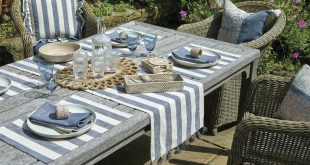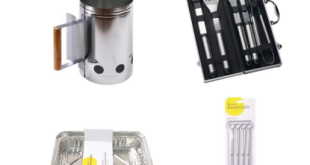Elegant products that simplify consumers’ lives captured the top prizes at the International Housewares Association’s 30th annual Student Design Competition, the industry’s preeminent student design contest which this year celebrates three decades of innovation for the house and home. This year’s winners include a breast pump washing basin for moms on the go; a yarn storage system for crafters; a produce keeper and ripener; a plant watering system; a tactile safety system for the visually impaired; and a coffee grounds storage and recycling system.

The competition, sponsored this year by Procter & Gamble, challenges college students to redesign a current housewares product to meet the needs of the future or to create a concept for a new product. Winning projects are selected for their innovation, understanding of production and marketing principles and quality of entry materials. Since 1993, more than 6,500 entries have been submitted to the rigorous competition, which honours excellent design as well as communications skills. Winners have launched successful careers in the housewares and design industries and have returned to judge other student contestants.
The winning industrial design students and their products will be on display during The Inspired Home Show 2023, IHA’s global home + housewares marketplace, March 4-7 at Chicago’s McCormick Place. The winners and their products can be viewed on the Show’s website.
Katherine Gaylord, a junior at University of Notre Dame, captured first place and $3,500 for Stack, a breast pump drying rack for the breast pump pieces. It helps nursing mothers who pump at work or in public restrooms to wash safely, easily, and discreetly, dry and store breast pump equipment.
“Stack is a clear winner because Katherine saw the many complications that mothers face with breast milk pumping and developed an all-integrated product,” said competition judge Amanda Bolton of Procter & Gamble. “Her design is visually beautiful, calming, inviting and a great example of human-centred innovation.”
Second and Third Place Winners
Two students will be honoured with second place awards of $2,300 each: Alicja Ramotowski, a senior from University of Notre Dame, for SPIN, a home yarn dispenser and storage solution, and Austin Liebgott, a junior from Appalachian State University for Alma, a produce keeper and ripener.
SPIN utilizes an angled trajectory to make the dispensing process of yarn as seamless as possible and works with a variety of differently spun yarns. Additionally, the user can place needles and unfinished projects into the spool of yarn as a simultaneous storage and display piece.
Developed in response to the enormous amount of food waste across the globe, Alma keeps produce fresh while simultaneously being eco-friendly by reducing consumption and lowering consumers’ carbon footprint. Alma refrigerates produce without the use of electricity and expedites the ripening process so fresh produce can be enjoyed when desired.
Three students will share third place and each will receive a $1,000 prize: Planted, by Aiden C. Schutte, junior at Western Michigan University, helps inexperienced or time-crunched plant owners maintain healthy plants and a desired aesthetic in the home. Water gets to the soil by penetrating through a hole at the bottom of the planter, which allows the plant to drink as much as it needs without overwatering.
Chi, by Charlotte Brittain, senior at the Cleveland Institute of Art, is a tactile safety system for the visually impaired, providing invisible hazard awareness. The system of wearable sensory devices consists of a visual sensor, vibrating feedback units, a digital data hub and charging home. Chi helps the visually impaired identify overhead hazards that cannot be detected by the traditional white cane. This cutting-edge technology also shows promise in the advancement of assistive technology.
GROUND, from Augustine Curran-Muñoz, a Purdue University senior, is a coffee grounds storage system that promotes recycling of used grounds by storing and heat-treating them for future fertilizer use. GROUND heat-treats the coffee grounds passively in a dedicated storage capsule and compresses the grounds when ready into compact fertilizer pucks, saving greatly on storage space.
 Housewares Business-to-business magazine for housewares retailers and their suppliers
Housewares Business-to-business magazine for housewares retailers and their suppliers



